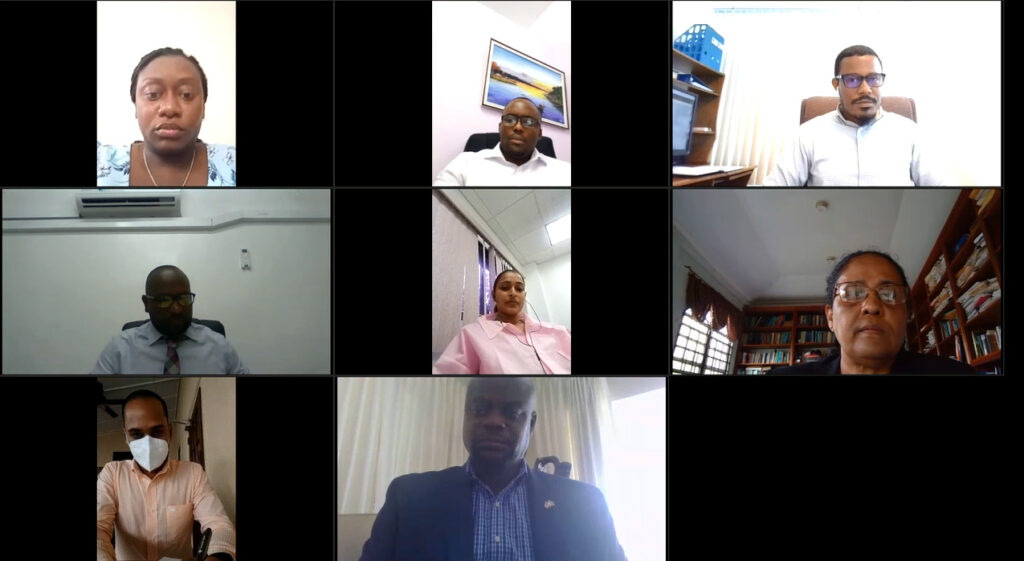
Regional Public Health Practitioners to benefit from Clinical Management of HIV course
Friday, 12 March 2021 (PANCAP Coordinating Unit, CARICOM Secretariat): The Pan-Caribbean Partnership against HIV and AIDS (PANCAP), the mechanism that provides a structured and unified approach to the Caribbean’s response to the HIV epidemic, is facilitating an exciting educational and capacity building opportunity for Public Health practitioners working in the Region’s HIV response.
PANCAP is providing financial support for twenty (20) Public Health practitioners to attend the Clinical Management of HIV course at the University of Washington Global Health E-Learning Program. The course provides a global perspective on the diagnoses and clinical management of HIV. Participants will learn from experts in the field, who offer real-world examples of diagnosing and treating HIV and STIs in both resource-rich and resource-constrained settings, with a focus on using US-based guidelines. The course will commence in April 2021.
During a virtual orientation, Dr Rosmond Adams, Director, PANCAP, highlighted that the course is happening at a critical time when Public Health Practitioners are challenged with maintaining the HIV response while tackling COVID-19.
“Our public health practitioners have mounted an extraordinary response to COVID-19”, stated Dr Adams, “Within a few months, the Region reacted with COVID-19 testing, appropriate safety measures and public health education. Now we’re witnessing the rollout of effective COVID-19 vaccines within a year after the start of the pandemic. Our healthcare workers were responding to COVID-19 while maintaining the gains made in the HIV response. PANCAP is pleased to enhance their ability to test, treat and provide care for HIV by facilitating access to the course”.
Dr Shanti Singh-Anthony, Coordinator, Knowledge Management, PANCAP, explained that the online graduate-level course consists of video lectures, readings, discussion forums, and quizzes. She emphasised that group participation is encouraged as it provides a platform for discussing course concepts and applying them to the Caribbean.
Dr Singh-Anthony further highlighted that the course is part of PANCAP’s overarching Knowledge Management strategy to empower regional public health practitioners to achieve the 2030 goal of ending AIDS through providing the requisite capacity building, training and knowledge.
The course is funded by the United States Agency for International Development (USAID) through support to the PANCAP Coordinating Unit. Mr Jason Fraser, USAID Country Representative, noted that they are indeed glad to support this initiative to build capacity as the Region advances action towards ending AIDS.
Permanent Secretary in the Ministry of Health, Guyana, Mr Malcolm Watkins, thanked PANCAP for spearheading this initiative and stated that it would build capacity for practitioners working in HIV to advance national and international targets.
Participants include Medical Doctors, Nurses, Physician assistants/Medexes, National AIDS Programme Managers, and Civil Society Organisation (CSO) representatives with clinical backgrounds.
The course is only the first phase of a planned capacity building initiative by PANCAP, encompassing more training opportunities and virtual courses for Public Health practitioners working in the Region’s HIV response.
– ENDS –
Contact:
Timothy Austin
Senior Project Officer, Communications
PANCAP Coordinating Unit
CARICOM Secretariat
Turkeyen, Greater Georgetown, Guyana
Email: taustin.consultant@caricom.org
Tel: (592) 222-0001-75, Ext. 3409 | Visit www.PANCAP.org
Helpful links:
Clinical Management of HIV course web page
https://edgh.washington.edu/courses/clinical-management-hiv
What is PANCAP?
PANCAP is a Caribbean regional partnership of governments, regional civil society organisations, regional institutions and organisations, bilateral and multilateral agencies and contributing donor partners which was established on 14 February 2001. PANCAP provides a structured and unified approach to the Caribbean’s response to the HIV epidemic, coordinates the response through the Caribbean Regional Strategic Framework on HIV and AIDS to maximise efficient use of resources and increase impact, mobilises resources and build capacity of partners.
